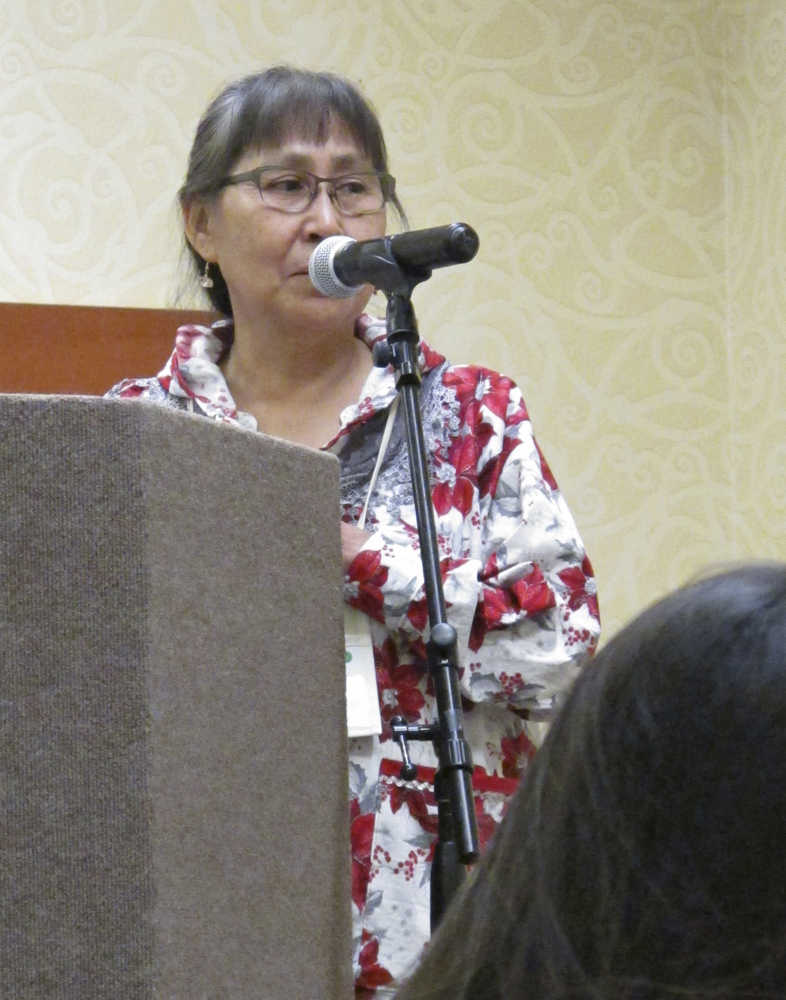ANCHORAGE — At age 5, Bernadette Yaayuk Alvanna-Stimpfle knew only her Native Inupiaq language when she entered school in Nome and the only way to learn English was by observing teachers and memorizing phrases.
“I thought the whole world was English at school and Inupiaq at home,” she told an audience Wednesday in Anchorage. “But it wasn’t so, I found out later on.”
Decades later, the language preservation expert still chokes up over the plight of Alaska Natives thrust into a Western education system that once punished them for speaking their indigenous language.
Alvanna-Stimpfle, a member of the state’s Alaska Native Language Preservation and Advisory Council, was among speakers at a tribal education summit wrapping up Wednesday. About 100 delegates from around the state gathered for the two-day event hosted by the Inuit Circumpolar Council Alaska. Organizers say the summit continues an effort to improve the education system in culturally appropriate ways.
At the podium, Alvanna-Stimpfle asked fluent Native speakers in the crowd to stand up, and about a dozen people did. She then asked people to remain standing if they had been punished for speaking their language. A number remained standing, and she noted they were owed apologies from missionaries and the federal Bureau of Indian Affairs for squelching their language in the past.
Alvanna-Stimpfle, who also sits on the ICC’s education steering committee, then asked for non-fluent speakers to stand, prompting many in the crowd to do so. She fought back tears when noting that they never learned their full language because of harms done to elders who were punished for speaking it.
“For this part, it is our turn to say I’m sorry,” she said, her voice breaking. “We are so sorry you weren’t spoken to in your Native language because there was so much hurt in the speaker’s heart. It’s because we wanted to make you fit in in the schools and do well.”

